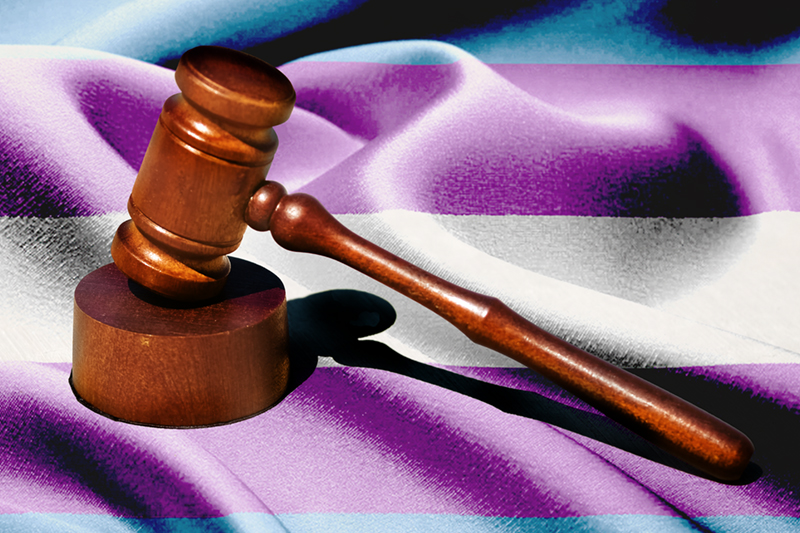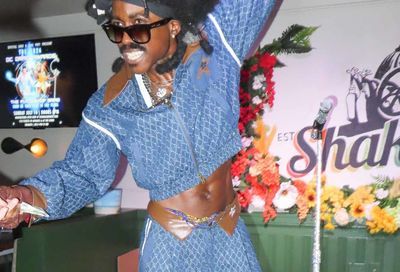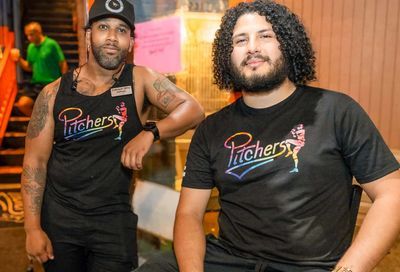LGBTQ Advocates React to Equality Act Reintroduction
Advocates urge passage of far-reaching nondiscrimination bill, saying it will benefit LGBTQ people in a variety of ways.

On Wednesday, Democratic leaders in Congress reintroduced the Equality Act, a sweeping piece of civil rights legislation that would update existing federal nondiscrimination laws to outlaw discrimination against LGBTQ individuals in various facets of life, from employment to housing to access to public accommodations.
The Equality Act has passed the House of Representatives twice in the past four years, in two separate legislative sessions, back when Democrats controlled the lower chamber.
It has failed to gain traction in the Senate, sometimes even being denied a hearing when Republicans have controlled the upper chamber.
The bill’s current version, which builds upon the framework established more than a decade ago when Congress unsuccessfully attempted to pass similar, but not identical, protections to the Employment Non-Discrimination Act during former President George W. Bush’s second term, was introduced in 2015 by former U.S. Reps. David Cicilline (D-R.I.) and John Lewis (D-Ga.), and Sens. Jeff Merkley (D-Ore.), Tammy Baldwin (D-Wis.), and Cory Booker (D-N.J.).
This year, Merkley and U.S. Rep. Mark Takano (D-Calif.) are serving as the lead sponsors, with every member of the House Democratic Caucus signing on as a co-sponsor.
While it remains to be seen whether the bill can gain traction in either chamber — in the House, due to Republican rule, and in the Senate, due to the need to garner more than 60 votes to overcome a silent filibuster — the near-unanimous support from Democrats clearly distinguishes where the party, and its elected representatives, stand on the issue of LGBTQ equality.
Currently, 22 states have nondiscrimination laws in place that mirror the exact protections that the Equality Act would provide.
Recent polling from the nonpartisan Public Religion Research Institute shows that more than 80% of all Americans — including majorities of Democrats, independents, and Republicans — claim to support the idea of passing a law to protect LGBTQ people from discrimination in jobs, public accommodations, and housing.
However, such support is largely passive, and it remains to be seen how Americans will respond — or whether they’ll push back against politicians opposing such laws — especially after vocal anti-LGBTQ pundits and right-wing think tanks attempt to reframe instances of discrimination as a form of “religious freedom,” as they have done in past years.
Although a recent survey by the Williams Institute, an LGBTQ-focused policy think tank at the UCLA School of Law, found that more than 7 in 10 American adults oppose allowing individuals or businesses to cite religious beliefs as justification for discrimination, that same poll shows differences in opinion are influenced by a person’s political affiliation, with Republicans more likely to support discrimination in some scenarios.
While clear-eyed about the type of procedural and legislative obstacles that the Equality Act is likely to face, LGBTQ advocates praised the reintroduction of the civil rights bill.
“Lambda Legal applauds the reintroduction of the Equality Act, long past-due federal legislation which provides clear, comprehensive, and explicit protections for LGBTQ+ people in federal law,” Kevin Jennings, the CEO of LGBTQ legal firm Lambda Legal, said in a statement, citing hundreds of anti-LGBTQ pieces of legislation introduced at the state level.
“In a year when we have seen unprecedented, coordinated attacks by states on LGBTQ+ people, especially on transgender and non-binary youth, the need for the Equality Act could not be clearer,” Jennings added. “Without comprehensive federal protections, the basic rights of LGBTQ+ people vary state to state. … The current patchwork of protections for LGBTQ+ people is inadequate and unjust, which is why we need the absolute clarity of the Equality Act, and we need it now.”
The National Center for Lesbian Rights also backed the bill, calling it a “historic step” towards ensuring LGBTQ people and their families are shielded from discrimination.
“This year alone, in state houses across the country, more than 650 anti-LGBTQ bills have been introduced that, among other things, ban medically necessary care for transgender youth and attempt to censor any positive mention of LGBTQ issues or people in schools,” NCLR Executive Director Imani Rupert-Gordon said in a statement.
“The Equality Act would fill gaps in existing federal civil rights laws and extend much-needed nondiscrimination protections in vital parts of everyday life to LGBTQ people, including the most underrepresented in our communities, for the very first time.”
The National Black Justice Coalition urged swift passage of the Equality Act, noting that the bill is essential for people who are both Black and identify as LGBTQ or same-gender-loving.
“At its core, the bill acknowledges that all Black people should be covered by existing civil rights protections provided by laws like the Civil Rights Act of 1964 and the Fair Housing Act. It makes explicit that existing protections should be extended to those of us who are also members of sexual minority communities,” said David Johns, the executive director of NBJC. “Supplementing the Bostock Supreme Court decision, the Equality Act would also ensure an LGBTQ+/SGL employee cannot be fired because of their sexual orientation.
“While the bill is unlikely to pass under the current House Majority, whose leadership’s platform is erected upon eroding democracy, anti-Blackness, and LGBTQ+ hate, it is important that our community is aware of the politically-motivated suppression of this bill,” he added. “The GOP is being held hostage by a loud minority who care more about dangerous and divisive rhetoric than defending democracy.”
Kierra Johnson, executive director of the National LGBTQ Task Force Action Fund, cited the slew of anti-LGBTQ legislation being introduced or passed in various states as problematic and a threat to the well-being of LGBTQ communities.
She also called on the Biden administration to rally congressional support for the measure and others like it that expand protections for groups vulnerable to discrimination.
“In the United States, 7.2% of adults identify as LGBTQ,” said Johnson. “Which means that the Equality Act would actively protect almost 20 million LGBTQ individuals in spaces where discrimination is prevalent and intentional…. Everyone should be able to live without the fear of harassment, violence and discrimination. This is an opportunity for Congress to work together to bring our country closer together. We’ve been waiting too long. The time is now to make the Equality Act a reality and take the country one step closer to living its promise of ‘liberty and justice for all.'”
Denise Spivak, the CEO of CenterLink, a network of community centers that make various services and programs available to members of the LGBTQ community, also praised the bill’s reintroduction.
“America is supposed to be the land of opportunity, but around half of LGBTQ Americans live in places where they can be denied housing, employment, or services simply because of who they are,” Spivak said. “The Equality Act would help ensure that LGBTQ Americans could live their lives without the fear of discrimination or harassment and we implore all members of Congress to work tirelessly to get this passed once and for all.”
Melanie Willingham-Jaggers, executive director of GLSEN, which seeks to create affirming and safe spaces for LGBTQ youth in school environments, said the passage of the Equality Act would assist in achieving the organization’s goals.
“LGBTQ+ young people in schools across the U.S. are facing attacks from right-wing extremists who are intent on silencing, excluding, and erasing them,” Willingham-Jaggers said in a statement. “The Equality Act will protect LGBTQ+ students, families, and educators from discrimination in the classroom and across multiple dimensions of life, such as healthcare and housing.”
Kasey Suffredini, the vice president of advocacy and government affairs at The Trevor Project, the nation’s top suicide prevention and crisis intervention organization focusing on LGBTQ youth, noted that the organization’s 2023 National Survey on the Mental Health of LGBTQ Young People found that 6 in 10 LGBTQ-identifying young people reported experiencing discrimination due to their sexual orientation or gender identity. The survey also found that those who had experienced discrimination were more than twice as likely to attempt suicide than youth who did not experience discrimination.
“We all deserve to live our lives free from discrimination,” Suffredini said in a statement. “Treating everyone with dignity and respect — regardless of who they are or who they love — is supported by a majority of Americans across geography, demographics, and political affiliation…. [We] strongly urge federal lawmakers to work together to codify these protections and bring us one step closer to equality.”
Support Metro Weekly’s Journalism
These are challenging times for news organizations. And yet it’s crucial we stay active and provide vital resources and information to both our local readers and the world. So won’t you please take a moment and consider supporting Metro Weekly with a membership? For as little as $5 a month, you can help ensure Metro Weekly magazine and MetroWeekly.com remain free, viable resources as we provide the best, most diverse, culturally-resonant LGBTQ coverage in both the D.C. region and around the world. Memberships come with exclusive perks and discounts, your own personal digital delivery of each week’s magazine (and an archive), access to our Member's Lounge when it launches this fall, and exclusive members-only items like Metro Weekly Membership Mugs and Tote Bags! Check out all our membership levels here and please join us today!



























You must be logged in to post a comment.